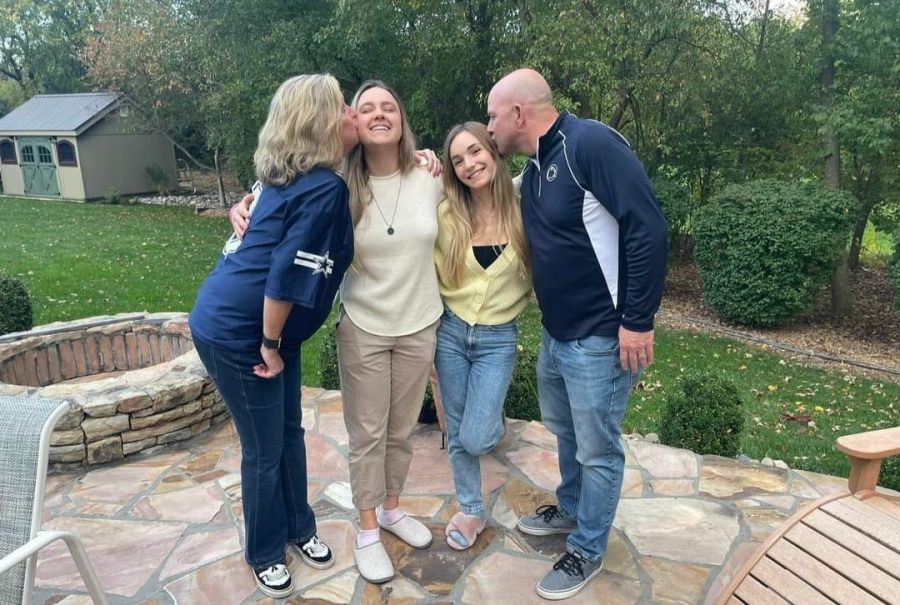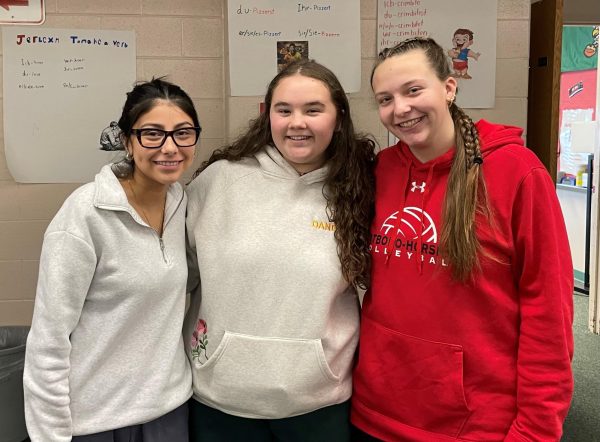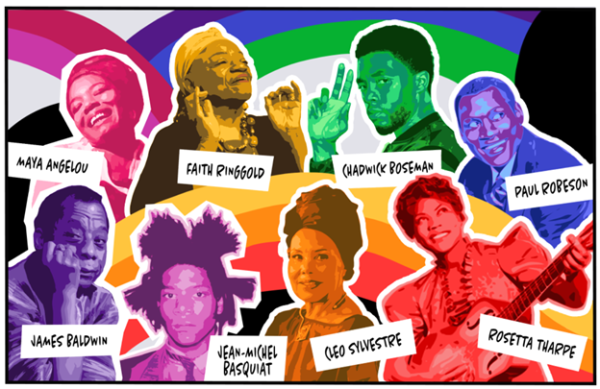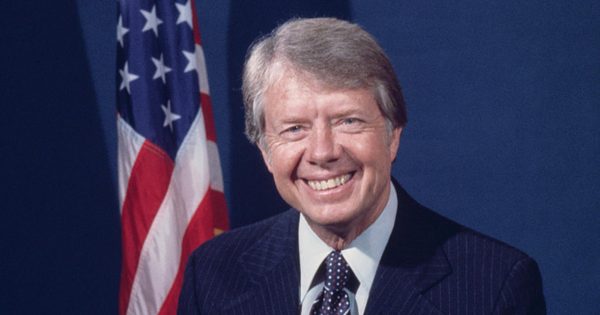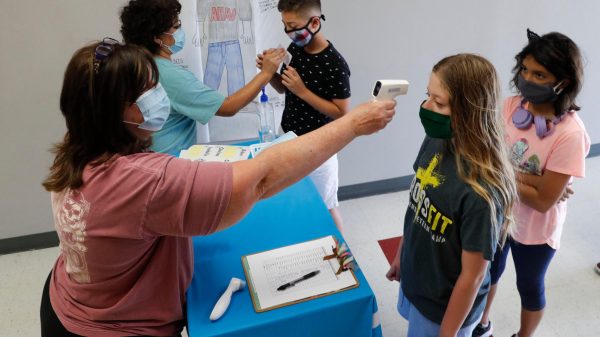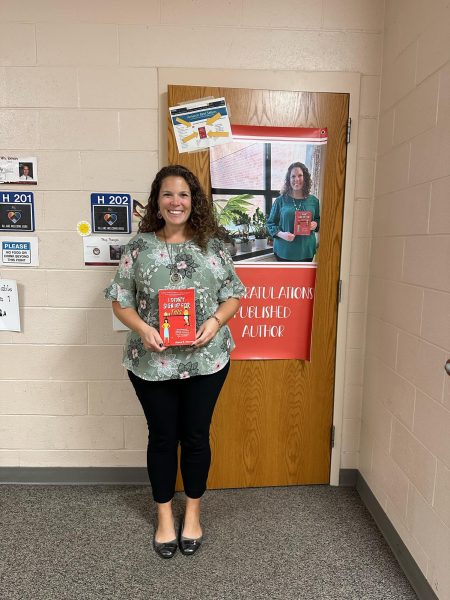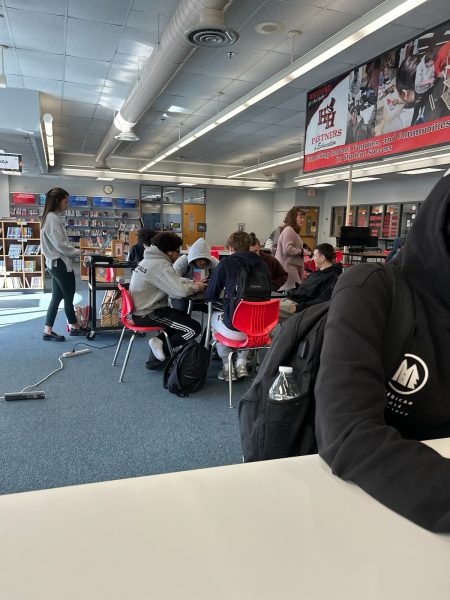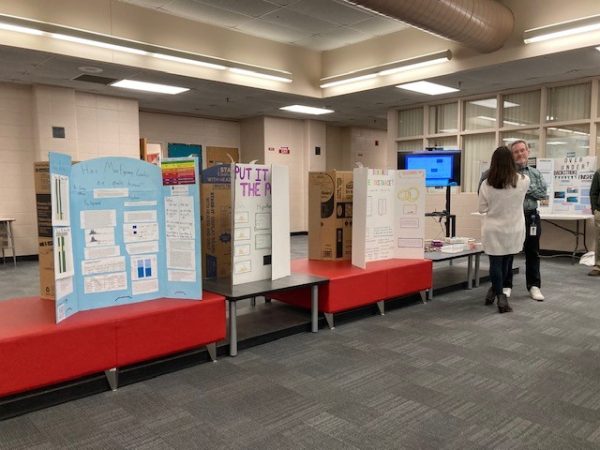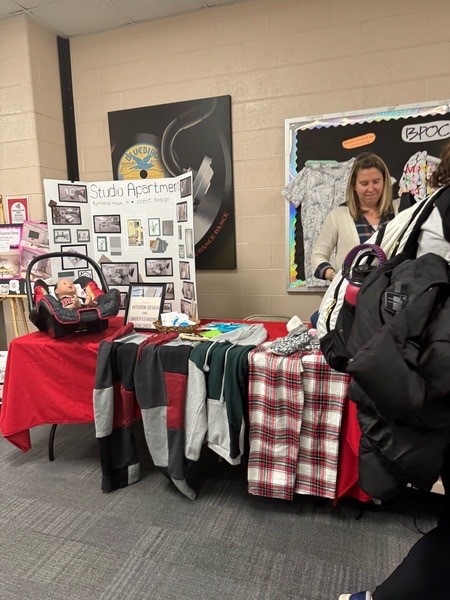Hosting Ukrainian Refugees
For more than 8 months, war has been raging on Ukrainian land. Millions of civilians have fled the violence incited by the Russian invasion. Some of the most common destinations are Eastern European and North American countries like Poland, Belarus, Canada and the U.S. Many, not having anyone to help them settle down at first, turn to warm-hearted citizens for foster housing.
Physics teacher Mrs. Jennifer McElrath had the chance to offer said support.
Mrs. McElrath and her husband are fostering two refugees, Anastasia (25) and Valeria (23). Both from Mariupol (currently under occupation). Here is what Mrs. McElrath has to say about Anastasia’s and Valeria’s progress:
“They went to Austria for a few weeks and they came to the United States mid-July. They were staying with friends of ours, and my husband and I got to meet the girls and Anastasia’s family.
Valeria and Anastasia are friends. Anastasia’s family – mom, dad and twenty eight year old sister – live with our friends in Horsham. So it’s nice that two girls can live separately from the family, because they had their own apartments and they’re adults.”
Unlike Anastasia, Valeria’s mom is in Turkey. “I’ve met her mom on FaceTime but her mom doesn’t speak English, so she would just say: Thank you! Thank you! Thank you!”
Mrs. McElrath’s husband has been in the Army and spent 27 non-consecutive months in Iraq. He has seen the horrors of war, which motivated them to help these girls.
From personal experience, moving to another continent with a different language and culture is a challenging journey. Mrs. McElrath explained the girls’ transition:
“They are learning. Anastasia learned some English in school, so she knew more than the rest of the family. Her parents didn’t speak any English, so they’re all in English classes. But I can see a big difference in Valeria and Anastasia speaking. They practice with my husband, and they ask me about slang, what’s the intonation, what’s the body language.
There are definitely times when we’re not truly understanding each other. We try really hard and our girls too. We all try really hard to make sure we understand what no matter what we’re talking about. Sometimes they like to talk to us regarding what is going on in the news. Sometimes they’re crying that their friends were killed that day. And during those times when there’s lots of emotion, I feel like my husband and I don’t use Google Translate that much.
Our culture here is so different. For example, we had to explain taxes when they came home with their first paycheck. They were calling my husband: Mike! Help us with our paycheck!
Another thing is health insurance. I was having conversations like: You have to start your job because their health insurance is really, really good. Mike and I both were trying to explain what happens if you break your leg, and you go to the hospital, and they’ll fix it, and then you have to pay a $5000 bill.
Also, I’m learning now how different people interact with one another in the US versus Ukraine. Anastasia came home from work one day, and she’s like: ‘Why is everyone always saying please, thank you, how are you?’ They don’t even want to know how I am.”
To elaborate on the cultural and financial differences, healthcare is universal and free in Ukraine and most of the post-Soviet countries, such as Russia where I was born and raised. Also, the concept of small talk in our cultures is not as prevalent. It is not common to talk to strangers and especially to ask how they’re doing. When asking that question, people expect you to be honest with them because it is most likely a friend or a family member inquiring about you. Sincerity and integrity are highly valued. In contrast, in the US, getting too personal during small talk may be considered rude and a violation of privacy.
Following their departure from Austria, Anastasia and Valeria had to quickly assimilate into the new society with its own customs. Personally, at first, it is a laborious process, but, as you start making connections with people, it gets less painful. Both Anastasia and Valeria were at first hesitant about whether to stay or not in the United States.
Mrs. McElrath said, “I think they see a future in the United states. I asked what they think about things like citizenship. I think that’s the direction they’re headed right now: start with a green card, because they have nothing to go back to.”
Mrs. McElrath pointed out that the amount of support Ukrainian refugees receive across the globe makes it easier for them to get the help they need and assimilate into the culture and economy, and that there are lots of families like Valeria’s and Anastasia’s who are seeking support and assistance in these tough times.

